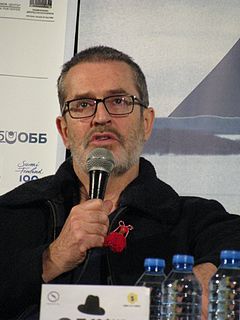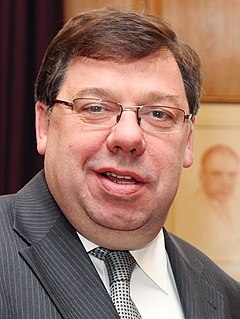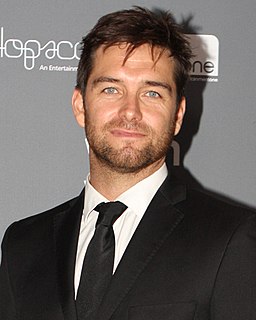A Quote by Tobias Forge
The problem with religious doctrine, as with politics, because of its ability to give people authority, it has a tendency to attract people that want authority for all the wrong reasons, and that is what it has done across all time.
Related Quotes
...[sacred] doctrine is especially based upon arguments from authority, inasmuch as its principles are obtained by revelation: thus we ought to believe on the authority of those to whom the revelation has been made. Nor does this take away from the dignity of this doctrine, for although the argument from authority based on human reason is the weakest, yet the argument from authority based on divine revelation is the strongest.
The notion of the enduring authority focuses on the fact that some people think that notions like authority of Scripture's is passé, while others say that the present configuration of the doctrine of inerrancy is a late addition. And to both we want to say, No we're talking about the enduring authority of Scripture, grounded first and foremost in its relevatory status, something given by God and utterly reliable.
Hopefully that will be seen as a response, a leadership responding to an issue and therefore one's authority, while it's not as high if you didn't have the problem, it does mean that people say 'well he used his authority to come up with a solution in double-quick time that met with broader public acceptance.'
There is a great difference, then, between "power" and "authority." Power refers to one's ability to coerce others (through physical, economic, or other means) to do one's bidding. One can possess the means of power: physical strength, armaments, and money. But authority must be performed. Authority refers to one's ability to gain the trust and willing obedience of others. While power rests on intimidation, authority survives through inspiration.
True gospel authority, the authority to heal and renew things and people, is not finally found in a hierarchical office, a theological argument, a perfect law, or a rational explanation. The Crucified revealed to the world that the real power that changes people and the world is an inner authority that comes from people who have lost, let go, and are re-found on a new level.
I think the film and TV industry - the acting world - has a tendency to attract a lot of people for the wrong reasons; reasons that are less than artistic. It has a tendency to be pretty superficial, and pretty shallow and fake. I think what New Zealanders and Australians - and the English, I guess - have to offer is that we don't carry a lot of that baggage. We come over and we're pretty grounded. But on the flip side of that, you end up in a very unfamiliar environment being treated in a way that's a little bit surreal.




































